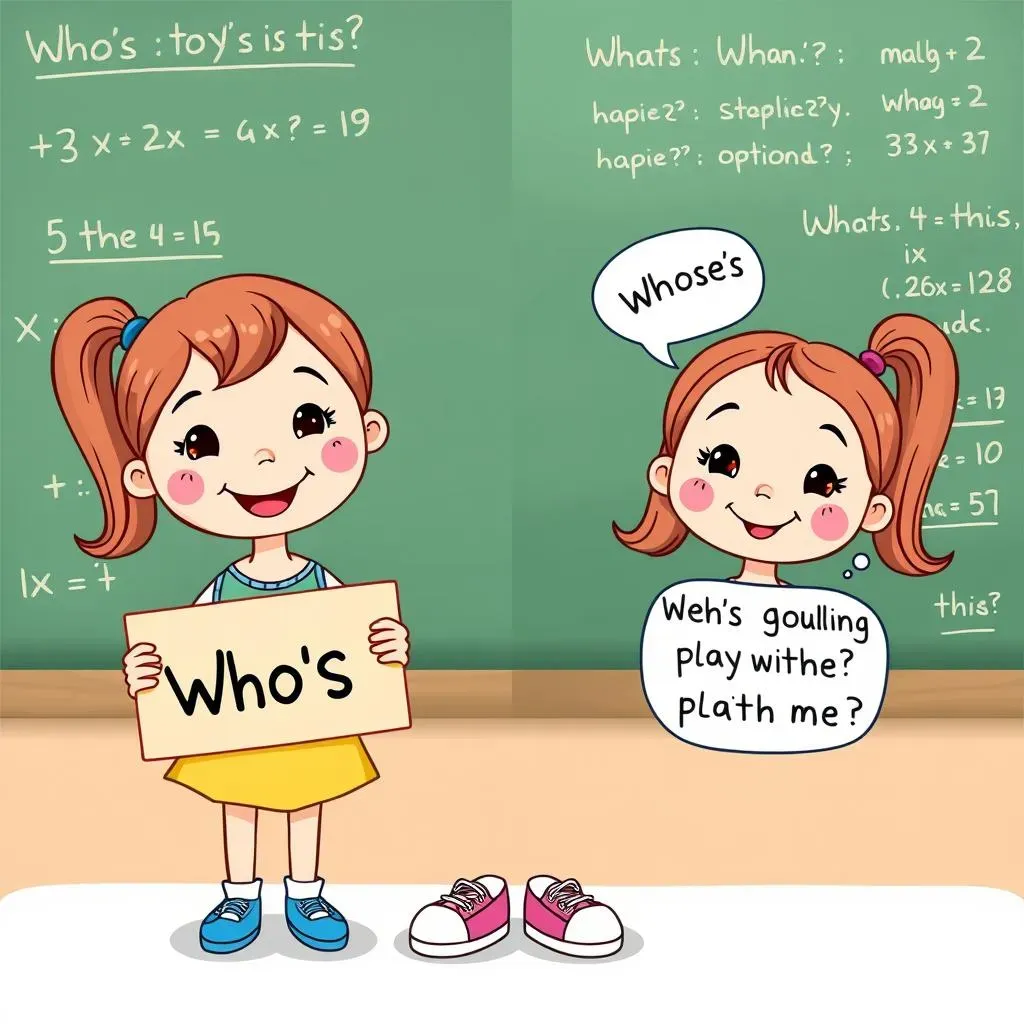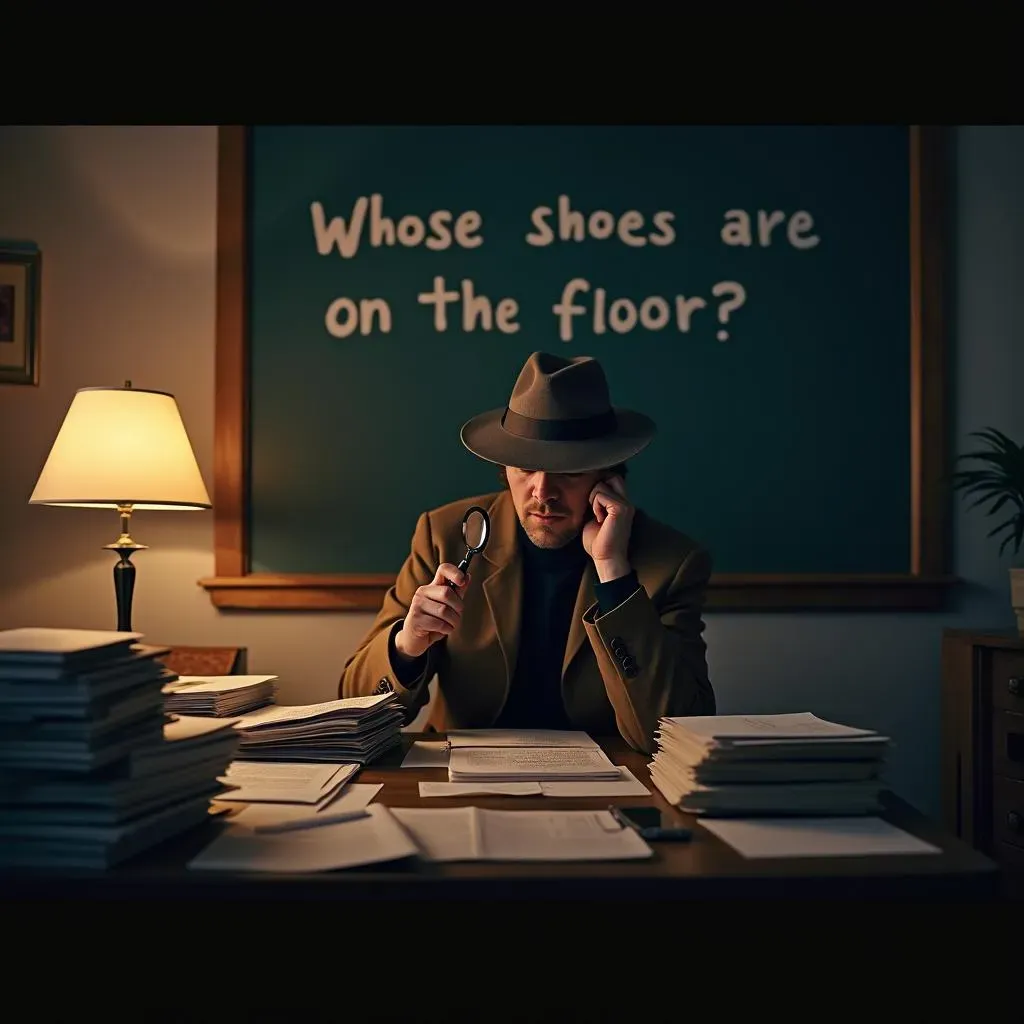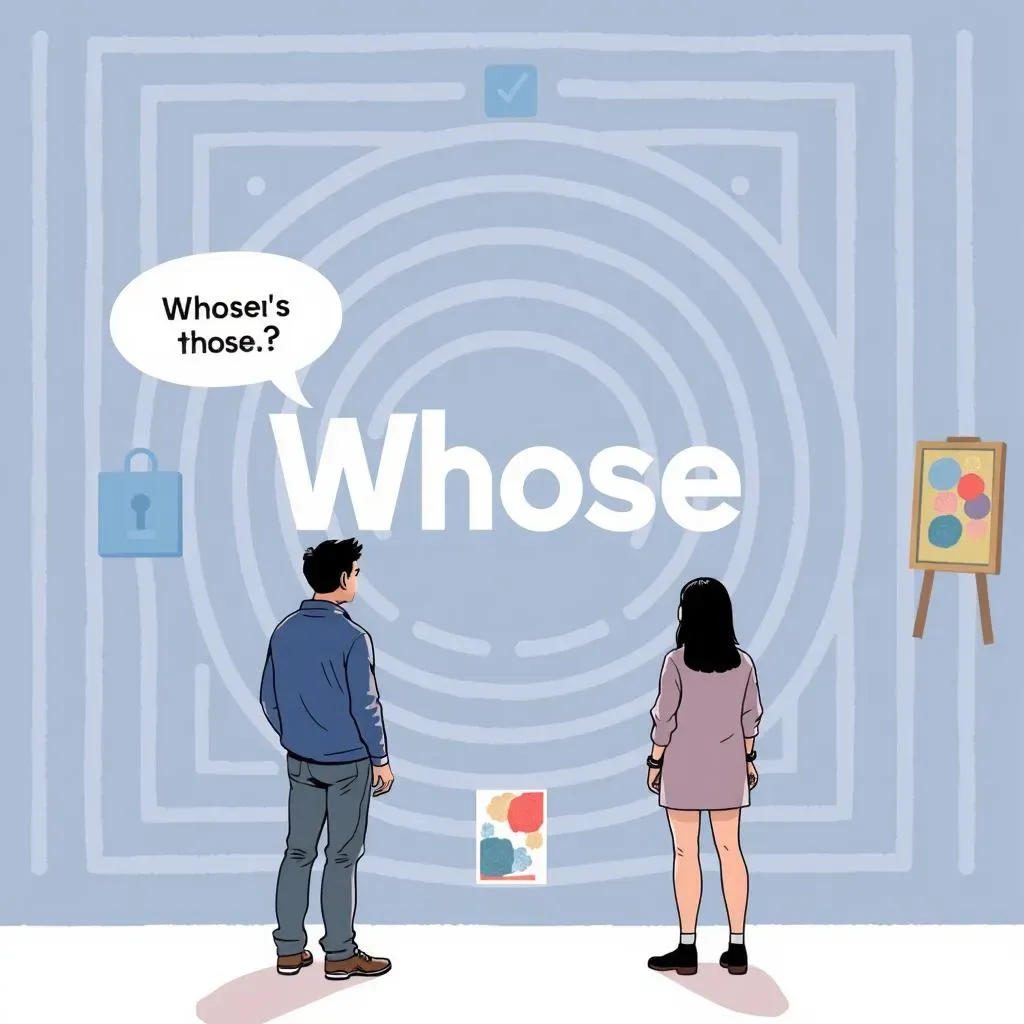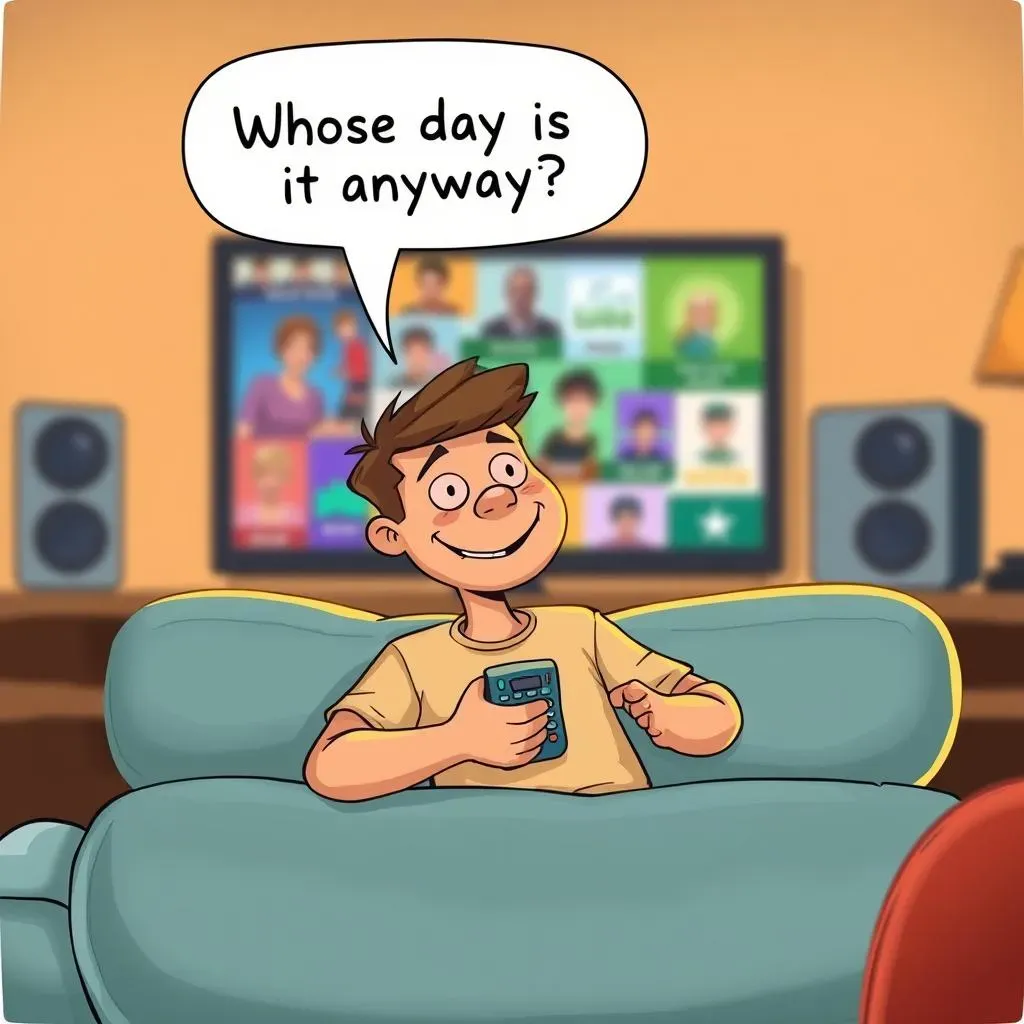Table of Contents
Ever stopped to think about the tiny words that trip us up? "Whose" and "who's" are perfect examples. They sound the same, but trust me, they have totally different jobs. Think of it like this: one's about figuring out who owns something, like asking "Whose day is it anyway?" when someone's hogging the remote. The other is just a shortcut for saying "who is" or "who has." It's easy to mix them up because our brains love to make things simple, sometimes too simple! This article will break down the difference between these two sneaky words. We'll look at when to use each one and give you some simple tricks to avoid those grammar oops moments. By the end, you'll know exactly whose day it is, grammatically speaking!
Understanding Whose Day: It's Not Just a Question

Understanding Whose Day: It's Not Just a Question
Whose vs. Who's: The Great Grammar Puzzle
Ever see "whose" and "who's" and your brain does a little flip-flop? You're not alone. These two words sound exactly the same, which is super sneaky. It's like having two twins who look alike but have totally different jobs. One helps us figure out who owns something, and the other is just a quick way of saying two other words.
Think of it like this: if you find a cool toy on the playground and ask, "Whose toy is this?" you want to know who it belongs to. That's the job of "whose." It's all about showing possession. But if you're wondering, "Who's going to play with me?" you're really asking "Who is going to play with me?" See the difference? It's like a secret code!
Why Do We Mix Them Up?
Our brains are wired to find shortcuts. When we hear "whose" and "who's," they sound identical, so our brains often just pick the one we use more often, which is usually the one with the apostrophe. Plus, we're used to seeing that little apostrophe-s at the end of words to show ownership, like "the dog's bone." So, when we see "who's," our brains jump to the conclusion that it's about possession, even though it's not.
Word | Meaning | Example |
|---|---|---|
Whose | Belonging to whom | Whose book is this? |
Who's | Who is / Who has | Who's coming to the party? |
Spotting the Difference: A Simple Trick
Here's a super easy trick to keep them straight. If you can replace "who's" with "who is" or "who has" and the sentence still makes sense, then "who's" is the right word. For example, "Who's got the tickets?" can be "Who has got the tickets?" But you can't say "Who is car is that?" That sounds silly, right? That's when you know you need "whose." It's like a little grammar detective game!
Whose Day Is It Anyway? Exploring Ownership

Whose Day Is It Anyway? Exploring Ownership
Okay, so let's really get into this "whose" thing. It's all about figuring out what belongs to whom. Think of it like a detective game where the clue is the word "whose." If you see "Whose shoes are on the floor?", you're trying to solve the mystery of the shoe owner. It's asking for a connection, a link of possession. It's not just about physical stuff either. You could ask, "Whose idea was it to order pizza?", trying to figure out who came up with the brilliant plan. "Whose" helps us connect actions, ideas, and even feelings to the person responsible.
Tricky Situations: Whose Day Gets the Spotlight?

Tricky Situations: Whose Day Gets the Spotlight?
When "Whose" Gets a Little Confusing
Sometimes, figuring out whether to use "whose" can feel a bit like navigating a maze. You might stumble upon sentences where it's not immediately obvious who or what the "owner" is. Take this for example: "The company, whose future was uncertain, announced new leadership." Here, "whose" isn't about physical possession, but more about a connection or association. It links the uncertainty to the company's future. It's like saying the future *belonging to* or *connected with* the company was shaky. These situations show "whose" can be used in a broader sense than just pointing out who owns a specific object.
"Whose" as a Stand-in
Here's another cool trick "whose" can do: it can act like a pronoun. Imagine you're in a lost and found and you pick up a phone. You could ask, "Whose is this?" In this case, "whose" stands in for "whose phone." It's a handy way to avoid repeating nouns. Or picture a scenario: Two artists are showing their work, and someone asks, "Whose is the painting with the blue trees?" "Whose" cleverly replaces "whose painting," making the question less clunky. It’s like a linguistic shortcut, making conversations smoother.
Tricky Scenario | Why it's Tricky | Correct Usage |
|---|---|---|
Company's uncertain future | "Whose" shows association, not direct ownership. | The company, whose future was uncertain... |
Asking about a belonging | "Whose" acts as a pronoun, replacing a noun. | Whose is this? (Whose phone is this?) |
When in Doubt, Sound it Out (Mentally)
If you're ever stuck, try mentally swapping "whose" with "of whom" or "of which." If it sounds right, then "whose" is likely your word. For instance, "The author, whose books I love," could become "The author, of whom I love the books." It's a bit more formal, but it helps clarify the connection. This little mental substitution can be a lifesaver when you're proofreading or trying to nail down the correct word in a tricky sentence. It's like having a secret decoder ring for grammar!
Making Every Day Whose Day: Appreciation and Recognition

Making Every Day Whose Day: Appreciation and Recognition
Think about it: knowing when to use "whose" correctly is like giving credit where it's due. It's about recognizing ownership, whether it's an idea, a belonging, or even a feeling. When we use "whose" precisely, we're showing respect for that connection. Imagine a team project – you wouldn't want to mistakenly ask "Who's idea was this?" when you really mean to acknowledge "Whose brilliant idea was this that saved the day?". See the difference? It's about acknowledging that spark of ownership. Using "whose" correctly is a small way to make every day a "whose day" – a day where contributions and connections are clearly recognized and appreciated. It might seem like just grammar, but it's also about giving proper recognition.
Scenario | Incorrect | Correct | Why it Matters |
|---|---|---|---|
Acknowledging an idea | Who's idea was it? | Whose idea was it? | Accurately attributes the idea. |
Finding a lost item | Who's is this? | Whose is this? | Seeks to find the rightful owner. |
